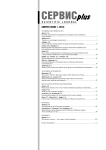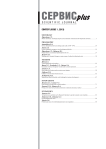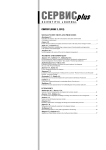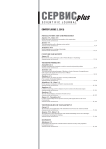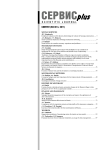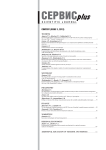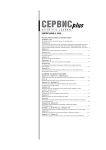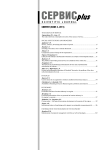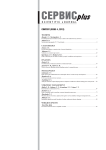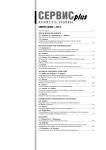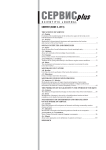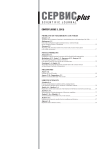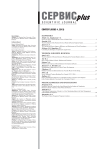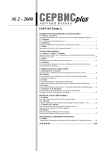Статьи журнала - Сервис plus
Все статьи: 1221
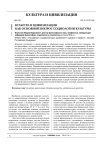
"Культура и цивилизация" как основной вопрос социологии культуры
Статья научная
Понятия «культура» и «цивилизация» в обыденном языке употребляются как синонимы. Но для философии и культурологии разделение этих понятий - вопрос принципиальный. И дело не только в том, что на идее противопоставления культуры и цивилизации построено большинство культурологических концепций XIX и XX веков. Что более существенно, сам ход исторического процесса в Европе и России наглядно показывает, что ценности культуры и цивилизации не только не совпадают, но и находятся на различных полюсах системы ценностей. Мы стали очевидцами, как современная цивилизация буквально вытесняет многовековые завоевания человечества в сфере Духа. Цивилизация и культура, понятые в качестве оппозиционных понятий, позволяют сопоставить их с «духовно-тварной» природой человека, его дуальностью и противоречивыми тенденциями в его духовном бытии. Понятия цивилизации и культуры в статье понимаются как совокупность материальных ценностей (цивилизация) и ценностей духовных (культура). Автор убежден, что в такой интерпретации эти системы приобретают трагический характер. Игнорирование цивилизационных вызовов современному миру чревато превращением человека в специалиста, его жизни в работу. В рамках «цивилизованных» отношений человек рискует деградировать до штамповки, социального эрзаца, потеряв собственно человеческие качества, индивидуальность, лицо, уникальность. Развитие техногенной цивилизации в ущерб культуре грозит нам нивелировкой духовных ценностей, накопленных человечеством веками. А значит, наша история рискует превратиться в дорогу в никуда.
Бесплатно
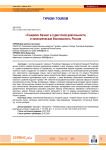
"Теневой" бизнес в туристской деятельности и экономическая безопасность России
Статья научная
С ростом въездного туризма в Российскую Федерацию из Китайской Народной Республики многие эксперты ожидали большие экономические вливания в нашу экономику, однако большая часть доходов от туризма отправляются обратно в Поднебесную, что существенным образом подрывает экономическую безопасность нашего государства. Это связано в первую очередь с деятельностью транснациональной организованной преступности и реализацией «серых» схем в туристской сфере, и это при том, что туризм в Российской Федерации признан на государственном уровне приоритетной сферой национальной экономики. Предметом исследования является идентификация угроз и опасности, а также механизмы обеспечения экономической безопасности развития индустрии туризма в РФ. Объектом исследования выступает туристская сфера как сложная экономическая система. Методы исследования. Наряду с основными общенаучными методами широко применялись такие частные методы познания, как логический, исторический, сравнительно-правовой, системно-структурный, статистический. Методологической основой настоящего исследования стали основополагающие категории диалектического материализма (отрицание отрицания, переход количественных изменений в качественные и некоторые другие). Научная новизна в работе заключается в том, что впервые рассматривается проблема деятельности транснациональной организованной преступности граждан из Китайской Народной Республики в области туризма.
Бесплатно

Application of innovative methods in distance learning in higher education
Статья научная
This article examines the issue of educational methodology elaboration in terms of distance education form. It is suggested that the educational method is elaborated by every educator individually. It is speculated that the educator may face the issue of previously elaborated method implementation in terms of e-learning. In accordance with this the concepts of the most popular education systems are being analyzed in this article. It is suggested, that the majority of the educators elaborate their own methods on the basis of the following systems. Thus, the most outstanding teaching methods are being considered: the instructional developmental education system by L.V. Zankov, activity approach by L.G. Peterson and student-centred education system by I.S. Yakimanskaya. The article aims to reveal the possibility to implement the mentioned teaching methods or their separate techniques in terms of online learning. Based on the analysis of each teaching method the variant of its implementation and adaptation into the reality of e-learning is being suggested. The capabilities of separate techniques compilation and interconnection are also considered in this arcitcle.
Бесплатно
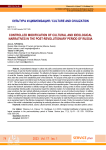
Статья научная
Unprecedented changes in culture and public consciousness were observed in the post-revolutionary period of Russia. It was then that the transition was made from the established norms of culture and society to completely new concepts dictated by the ideology of socialism. The reflection of changes in public consciousness was observed in all spheres of social life. However, despite the apparent spontaneity of the changes, it is necessary to realize that all transformations were under the control of the established power of the Bolsheviks. The purpose of this paper is to comprehensively examine the socio-cultural aspect of problems faced by Russian society and the newly formed government after the fateful revolution of 1917. This turning point in history led to a profound rupture of the established ideological, social and cultural structure, which had been formed before under the influence of a long patriarchal-imperialist system. Overcoming this challenging phase required the Bolshevik authorities to skillfully manage two distinct imperatives: seizing control of diverse cultural narratives and purposefully directing public consciousness toward the collective creation of a fundamentally new socialist reality. This paper scrutinizes the main methods effectively employed by the Bolsheviks in an era of profound social division. In addition, the paper critically explores the definition and immense importance of material and audiovisual symbols in the process of creating and affirming new cultural ideas. Emphasizing the pervasive role of symbols at all stages of "new age" identity formation, including their integration into the educational system. The assumption is made that the post-revolutionary era serves as an exemplary basis for the effective management of ideological aspects of society. Finally, the necessity of modern application of this model is substantiated, emphasizing its continuing relevance in the conditions of the modern world.
Бесплатно
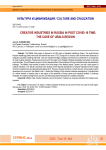
Creative industries in Russia in post COVID-19 time: the case of Urals region.
Статья научная
The Middle Urals region is famous for its 300 years of industrial metallurgy history. The world-famous Russian metallurgy plants were built and worked here since 1702. During the XX century some of them were destroyed or replaced, but plants’ buildings still exist. This rich industrial heritage nowadays has become a fundament for a uniqueness of Urals creative industries. Russian government and The Agency for Strategic Initiatives developed a program to renovate such territories. This all-Russian program is for the transformation of the territories of former industrial zones and abandoned buildings. The Middle Urals became a leader of the third stage of the federal project Creative Lab and a pilot region for creative industries. This article is devoted to the analyze of the regional development of creative industries and the usage of former industrial zone and abandoned buildings for it. There are several directions in which the work of the creative sector development is occurred in the Middle Urals: 1) writing the Strategy of the creative industries development; 2) development of a whole network of creative sites in the region on the territories of former plants and industrial facilities; 3) business education for creative entrepreneurs and new university educational standards for creatives industries.
Бесплатно
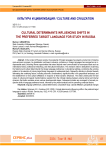
Cultural determinants influencing shifts in the preferred target language for study in Russia
Статья научная
In the context of Russian society, the popularity of foreign languages has played a pivotal role in fostering socio-economic progress. As globalization continues to advance, proficiency in foreign languages has emerged as an indispensable asset, unlocking diverse opportunities that extend beyond mere communication to encompass facets such as international travel, professional networking, and intercultural interactions. This research article is dedicated to examining the historical and cultural determinants that shape language preferences in educational settings, scrutinizing the evolving patterns in the selection of primary target foreign languages for widespread study. Noteworthy attention is directed towards delineating the underlying factors, including economic considerations, significant shifts in the geopolitical landscape, and the establishment of new cultural affiliations in response to these dynamic influences. The article underscores the fluid nature of cultural and linguistic transformations resultant from the intricate interplay between external stimuli and internal dynamics that define societies across various developmental stages. Subsequent studies are envisaged to forecast prospective shifts in language preference trends, informed by the present analysis and the prevailing contextual factors.
Бесплатно

